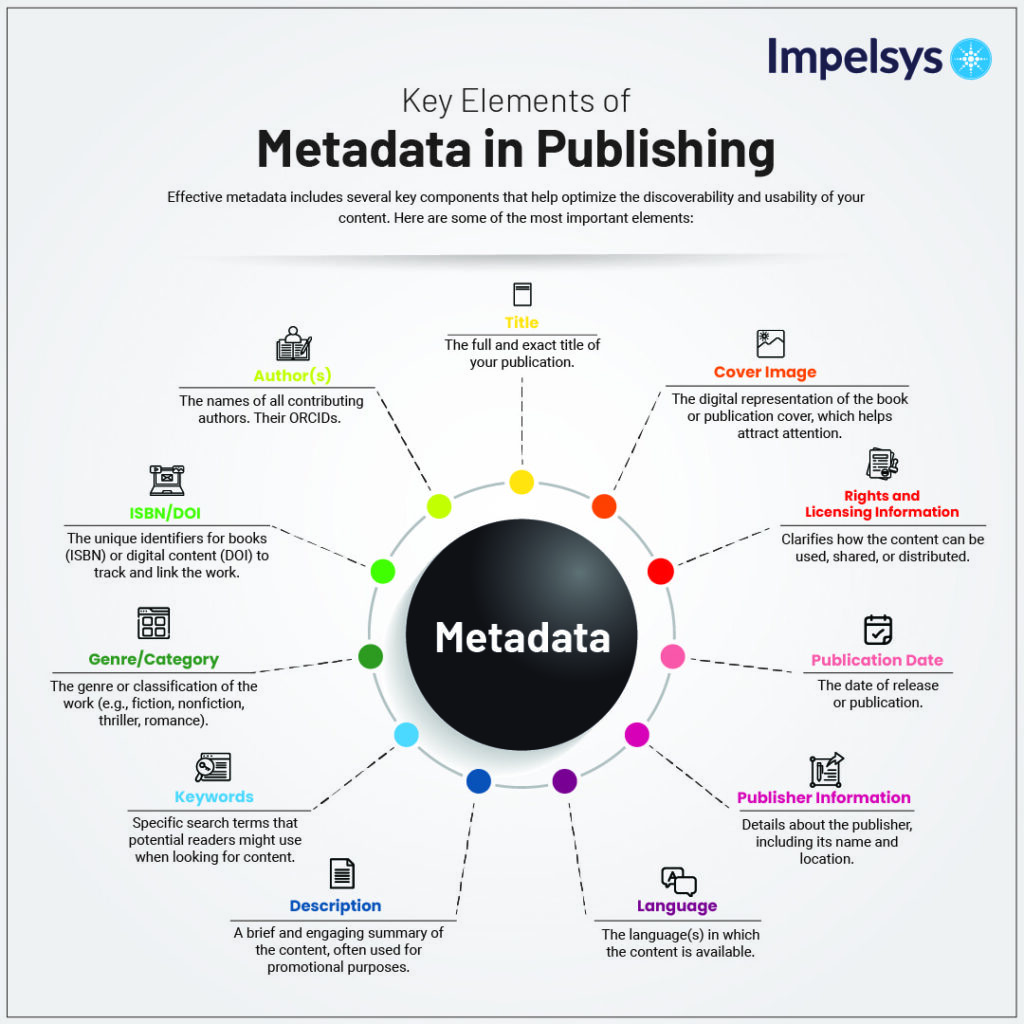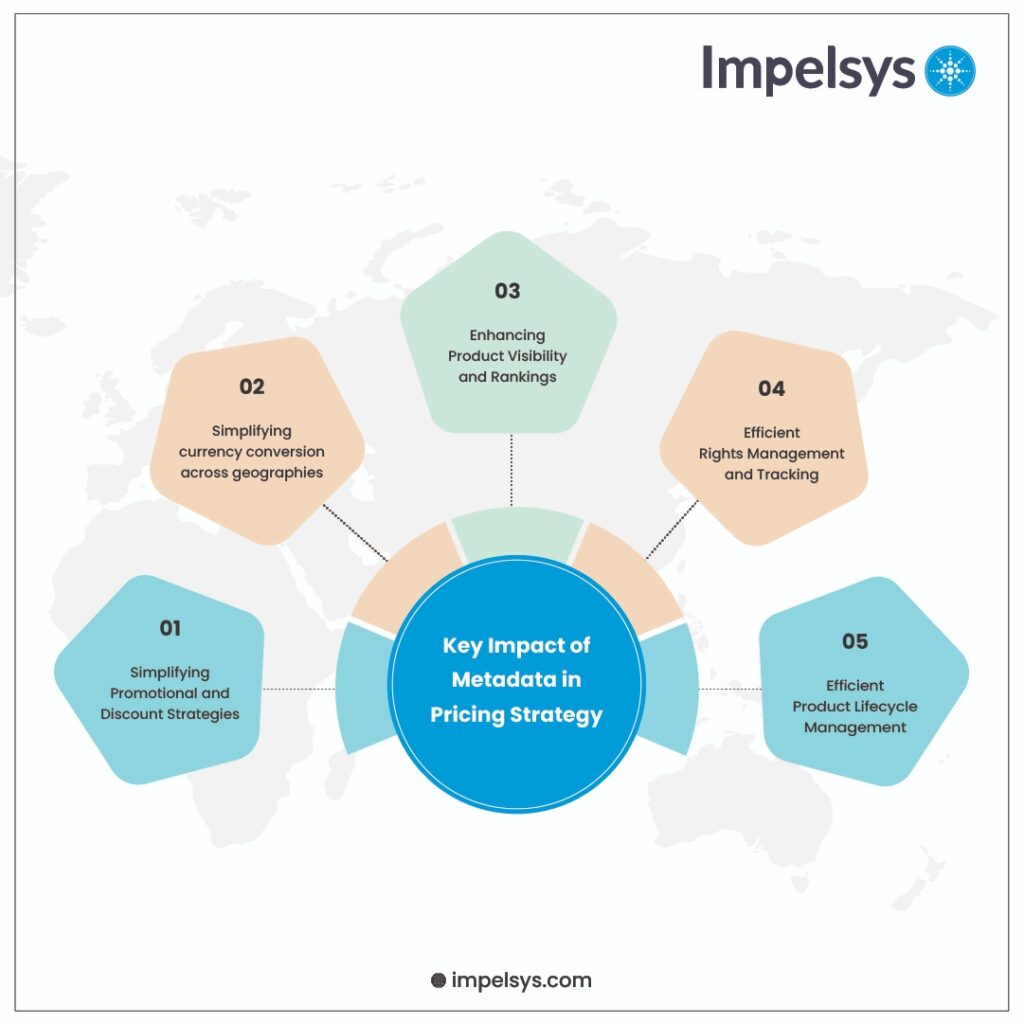In today’s publishing landscape, metadata is essential for making content accessible, discoverable, and well-organized. Whether you’re an author, publisher, or digital content distributor, understanding and leveraging metadata is the key to ensuring the success of your publications. Metadata extraction technologies are transforming the way content is categorized, indexed, and discovered. By using advanced algorithms like Artificial Intelligence (AI), and Natural Language Processing (NLP), these tools automatically extract vital information—such as author names, titles, publication dates, genres, and keywords—from texts, enabling efficient management of large content volumes. Technologies like Optical Character Recognition (OCR) for scanned documents, machine learning for tagging and categorization, and metadata scraping from platforms like eBook stores help publishers quickly organize and structure content, improving its searchability, discoverability, and distribution. Automating metadata extraction not only streamlines workflows and reduces errors but also ensures publishers can deliver accurate, up-to-date information to readers, retailers, and platforms across the digital ecosystem.
In this blog, we will explore what metadata is, why it’s important in the publishing industry, and how it can enhance your content’s visibility, organization, and reach.
What Is Metadata?
In simple terms, metadata is data that provides information about other data. In the context of publishing, metadata refers to the descriptive information about a book, article, or any other published content. This includes details, such as the title, author, genre, ISBN, publication date, language, keywords, and more.
While the content of a book or an article is what the readers engage with, metadata acts as the bridge between your content and its potential audience. It provides the essential information people need to find, understand, and engage with your work.
Why Is Metadata Important in Publishing?
1. Improves Discoverability and Searchability
In today’s digital world, most readers discover content online—whether through eBooks, audiobooks, websites, or databases. Metadata is a vital tool for making sure your content is easy to find. By incorporating the right keywords, categories, and descriptors, you help search engines, online retailers, and libraries match your work with the right audience. For instance, when someone searches for a book on platforms like Amazon or Google, the results they see are shaped by the book’s metadata. The more accurate and relevant your metadata, the higher the chances of your content appearing in search results, leading to greater visibility and a boost in sales and readership.
2. Aids in Content Organization
As the publishing industry expands and the volume of content grows, organizing that content becomes increasingly complex. Metadata plays a crucial role in categorizing books, articles, and other publications by key attributes, such as author, genre, subject, format, and more. This structured organization makes it easier to manage vast catalogs and databases, which is vital for libraries, bookstores, and online platforms that handle thousands or even millions of titles.
Additionally, publishers can leverage metadata to analyze reading trends and audience preferences, enabling them to make informed, data-driven decisions about future content development and marketing strategies.
3. Enhances User Experience
Metadata not only helps discoverability but also contributes to a better user experience. When readers can easily find books or articles that meet their interests and needs, they are more likely to engage with the content and become loyal customers or followers. Accurate and well-organized metadata allows users to quickly filter and sort options by genre, author, or topic, improving their browsing experience.
For example, eBook stores like Kindle, Barnes & Noble, and Kobo rely on metadata to sort and recommend content to users. If your metadata is properly formatted and optimized, it will help the platform suggest your books to the right audience, increasing the chances of being found by readers who are interested in your work.
4. Simplifies Licensing and Distribution
In the digital publishing landscape, content is frequently licensed, sold, or distributed across multiple channels, such as eBook stores, audiobook platforms, academic databases, and more. Metadata is crucial for ensuring smooth and consistent distribution across these various platforms. It enables publishers to maintain accurate information about pricing, availability, and formats, ensuring that readers always receive the correct version of the content. Additionally, metadata simplifies the tracking of rights and royalties, allowing publishers and authors to monitor where and how their content is being distributed. This transparency ensures proper compensation for all parties involved, making the licensing and distribution process more efficient and reliable.
5. Supports Sales and Marketing Efforts
Metadata plays a crucial role in supporting sales and marketing efforts by enhancing the organization, retrieval, and analysis of data. It helps businesses efficiently manage customer information, track interactions, and segment audiences based on demographics, behaviors, and preferences. By organizing content and campaigns with metadata tags, marketers can deliver targeted, personalized messaging that resonates with specific customer segments. Additionally, metadata facilitates performance analysis, enabling teams to measure the effectiveness of campaigns and refine strategies for better results. Ultimately, effective metadata usage empowers sales and marketing teams to streamline operations, improve customer engagement, and drive conversions.
6. Supports Accessibility and Compliance
Metadata can also be critical for meeting accessibility standards and legal compliance. For example, including information about content warnings, age appropriateness, or language options can help ensure that your publication is accessible to a wider range of readers. It also helps make your content compliant with the various regulations and standards in different regions and markets.
Key Elements of Metadata in Publishing:
Effective metadata includes several key components that help optimize the discoverability and usability of your content. Here are some of the most important elements:

Price, a key aspect of metadata, is essential for presenting the correct price of an eBook to potential buyers. Online platforms rely on metadata to display the right price for each format (e.g., Kindle, ePub, PDF) and ensure the correct pricing information is shown on the retailer’s site. The different components of price, in the context of metadata, are:

Best Practices for Managing Metadata
To fully leverage the benefits of metadata, it’s essential to follow best practices for managing and optimizing it. Here are some key guidelines:
- Be Thorough: Make sure all relevant metadata fields are completed accurately, paying attention to correct spelling and consistent naming conventions.
- Use Standardized Formats: Whenever possible, adopt industry-standard metadata formats like ONIX (for books) or Dublin Core (for digital content) to ensure compatibility across various platforms and distribution channels.
- Keep Metadata Updated: As your content evolves—whether through new editions, price adjustments, or format changes—regularly update your metadata to reflect the most current information.
- Optimize for Search: Consider the terms and phrases your target audience is likely to search for and include these in your metadata. Be strategic in selecting keywords and categories that will improve visibility.
- Maintain Consistency Across Platforms: If your content is distributed across multiple channels (e.g., Amazon, Barnes & Noble, your website), ensure that the metadata is consistent across all platforms. This helps avoid confusion and ensures accurate tracking and reporting.
Conclusion
It is more than just a behind-the-scenes tool—it’s a powerful asset that plays a pivotal role in improving the discoverability, organization, and success of your published content. Whether you’re a writer, publisher, or content distributor, investing in creating and maintaining effective metadata can lead to greater visibility, enhanced user experiences, and better sales and marketing results. By understanding its importance and optimizing it effectively, you ensure that your content is easy to find, navigate, and reach the right audience. In the dynamic world of digital publishing, metadata isn’t just useful—it’s indispensable.
Authored by: Adipta Chauhan







